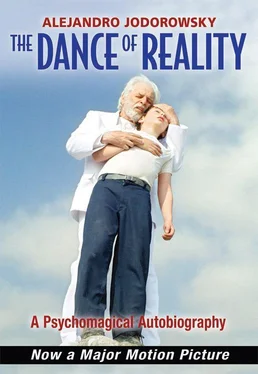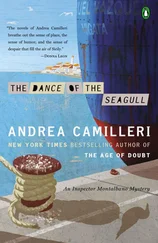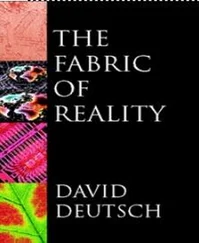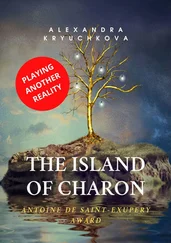I returned proudly to Casa Ukrania, showing off my necklace. Jaime, more Stalin than ever, trembled with rage. “That idiot Theosophist, appeasing the fear of death with illusions! Come with me to the bathroom!” He seized the medals from me. One by one he threw them into the toilet. “God does not exist, God does not exist, God does not exist, God does not exist! You die and you rot! After that there is nothing!” And he pulled the chain. The rush of water bore the medals away, and with them my illusions. “Papa never lies! Who do you believe, me or that loony?” Which one was I to choose, I who longed so for my father’s admiration? Jaime smiled for a second, then looked at me with his customary severity. “I’m tired of your long hair; you’re not a girl!”
Sara’s father had died before she was born. Her mother, Jashe, had fallen in love with a Russian dancer — not Jewish, a goy — with a handsome build and golden locks. When she was eight months pregnant, he climbed on top of a barrel full of alcohol to light a lamp. The lid broke, he fell into the flammable liquid, and it began to burn. The family legend was that he ran down the street, enveloped in flames, leaping up in the air as much as two meters high, and died dancing. When I was born I emerged with a full head of curly hair, as abundant and blond as the late idolized dancer. Sara never cuddled me, but she spent hours combing my hair, giving me ringlets, refusing to cut it. I was her father reincarnated. In those days no boys ever had long hair; thus, I was incessantly called “queer boy.”
My father, seizing the moment while Sara was napping, brought me to the barber. His name was Osamu, and he was Japanese. In a few minutes, reciting several times over, “Gate, Gate, Paragate, Parasamgate, Bodhi Svaha,” *2he cut my hair short and impassively swept away the golden curls. Immediately, I was no longer the burned dead man; I was myself. I could not help shedding a few tears, which brought my father’s contempt down on me with renewed force. “You wimp, learn to be a macho revolutionary and stop clinging to your mop of hair like a bourgeois whore!” How wrong Jaime was: losing that mane of hair, the subject of so much mockery, was an enormous relief. But I cried because losing my curls also meant losing the love of my mother.
Back at the shop I threw my coppery pebble into the toilet, pulled the chain, and ran proudly to the town square to make fun of the Theosophist, pressing my index finger to my temple as my sole response to his fervent words.
One might think that during my childhood I was more influenced by Jaime than by Sara. However, this was not the case. She, dazzled by my father’s charisma, applauded and repeated everything he said. Severity was the basis of the education I was to receive in order to grow up a man and not a woman; after the Japanese barber cut my hair, my mother applied herself diligently to this process. Tied down to the store all day, she had little or no time to devote to me. My socks had holes, and a circle of flesh was visible on each heel. Because of their round shape and color, the children likened them to peeled potatoes. While playing, if I wanted to run in the yard, my cruel peers would point to my heels and call out snidely, “I can see his potatoes!” This humiliated me and obliged me to stay still, keeping my feet in the shadows. When I asked Sara to buy me new socks, she grumbled, “It’s a useless expense, you’ll tear them the first day you wear them.”
“But mama, everyone in school is making fun of me. If you love me, mend them for me, please.”
“All right, if you need me to prove I love you, I’ll do it.”
She took her sewing box, threaded a needle, repaired the holes with great dedication, and showed me the socks, perfectly mended.
“But mama, you used flesh colored thread! Look, I put them on and it looks like you can still see my potatoes! They’ll keep making fun of me!”
“I mended them right away. I proved I love you by doing the useless work you asked me to do. Now you have to show me that you have a warrior spirit. Those children being mean shouldn’t affect you. Show off your heels proudly, and be thankful for the teasing because it makes your spirit stronger.”

Jaime, my father, and Sara Felicidad, my mother. He is seated to hide the fact that he is much shorter than her.

It is amazing what cultural richness was present in that small city isolated in the arid north of Chile. Before the crash of 1929 and the invention of artificial saltpeter by the Germans, this region, including Antofagasta and Iquique, was considered the land of “white gold.” Inexhaustible supplies of potassium nitrate, excellent for making fertilizer but above all, explosives, attracted a multitude of immigrants. In Tocopilla there were Italians, English, North Americans, Chinese, Yugoslavians, Japanese, Greeks, Spaniards, Germans. Each ethnicity lived behind high mental walls. And yet, in bits and pieces, I was able to gain things from these diverse cultures. The Spanish brought little books of Calleja’s fairy tales to the library; the English brought Masonic and Rosicrucian treatises; Pampino Brontis, the Greek baker, invited children to come and listen to his verse translation of the Odyssey every Sunday morning in order to promote his rose jam — filled pastries. The Japanese practiced archery on the beach, instilling in us a love of the martial arts. From time to time, the American women would show their generosity by offering sausages and refreshments in the city hall to the children of the men whom their husbands plunged into misery. Thanks to them, I became conscious of social injustice.
The day my father announced out of nowhere, “Tomorrow we’re leaving here. We’re going to live in Santiago,” I thought I was going to die. I woke up with a horrible rash. My skin was entirely covered with hives, I was delirious with fever, and the boat was leaving in three hours! Jaime stubbornly refused to postpone the voyage, even when Dr. Romero advised that I should stay in bed for at least a week. Cursing Western medicine, my father ran to the Chinese restaurant and, with his salesman’s skills, convinced the owner to give him the name and address of the doctor who treated them. There was not just one, but three aged brothers with a command of the science of the yin and yang. Serene as the mountains, with eyes like cats on the prowl and skin the color of my fever, they heated coarse grains of salt, put them on pieces of cotton cloth, folded these into packets, and rubbed them all over my body, almost burning me, whispering, “You go, but you stay here as well. If your branches grow to fill the whole sky, your roots will never leave the soil where they were born.” In half an hour the Chinese cured my skin, my fever, and my sadness, initiating me into Taoism.
Seeing me thus restored, my parents allowed me to say goodbye to my schoolmates. No one at school was surprised when I announced that I was leaving for good. After all, I was the child who could disappear in a second. This legend came from a spectacle at which I had assisted at the local theater. The theater usually showed films (it was there that I had the great pleasure of viewing Charles Laughton in The Hunchback of Notre Dame, Boris Karloff in Frankenstein, Buster Crabbe in Flash Gordon Conquers the Universe, and many other marvels), but sometimes the white screen was rolled back from the stage and visiting troupes would put on shows. So it was that Fu-Manchu, a Mexican magician, came to town. He told the adults to make sure the children kept their eyes closed, and with a great saw, he proceeded to divide a woman in two. When he put her back together and the blood was cleaned up, he permitted the children to watch the rest of the performance. He turned toads into doves, drew an interminable cord out of his mouth on which blinking electric lights were suspended, changed the color of a silk handkerchief ten times, then got down from the stage and, from a large teapot that he had filled with water, filled small clear glasses with whatever liquor the spectators requested. He gave vodka to my grandfather, aguardiente to Jaime, and whiskey, wine, beer, and pisco to others. Finally, he showed us a red armoire with a black interior and asked for a child to help. Moved by an irresistible impulse, I volunteered. At the moment I set foot on the stage, I felt for the first time that I was in my proper place. I was a citizen of the world of miracles. The magician told me solemnly, “My boy, I am going to make you disappear. Swear that you will never tell the secret to anyone.”
Читать дальше














